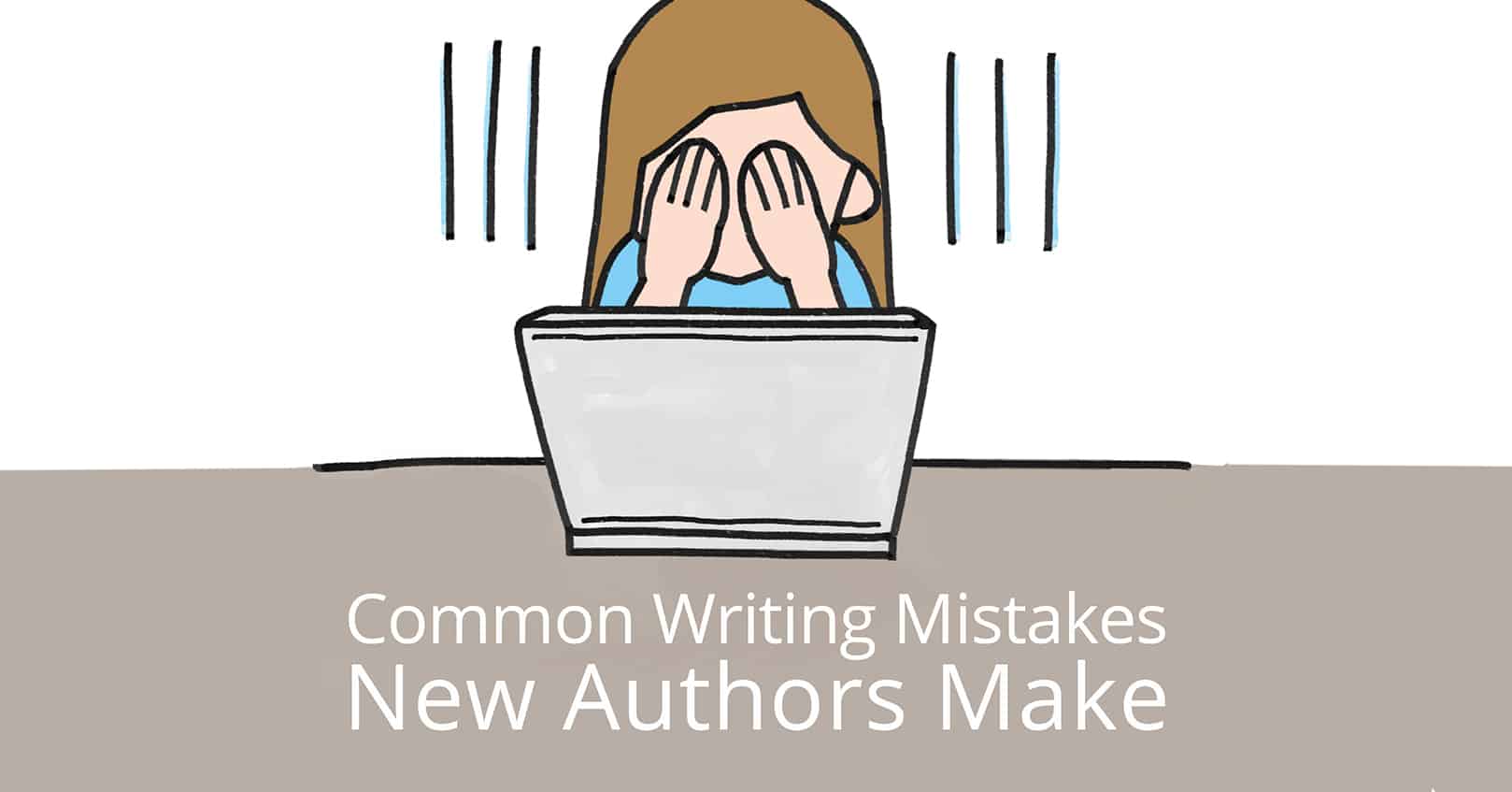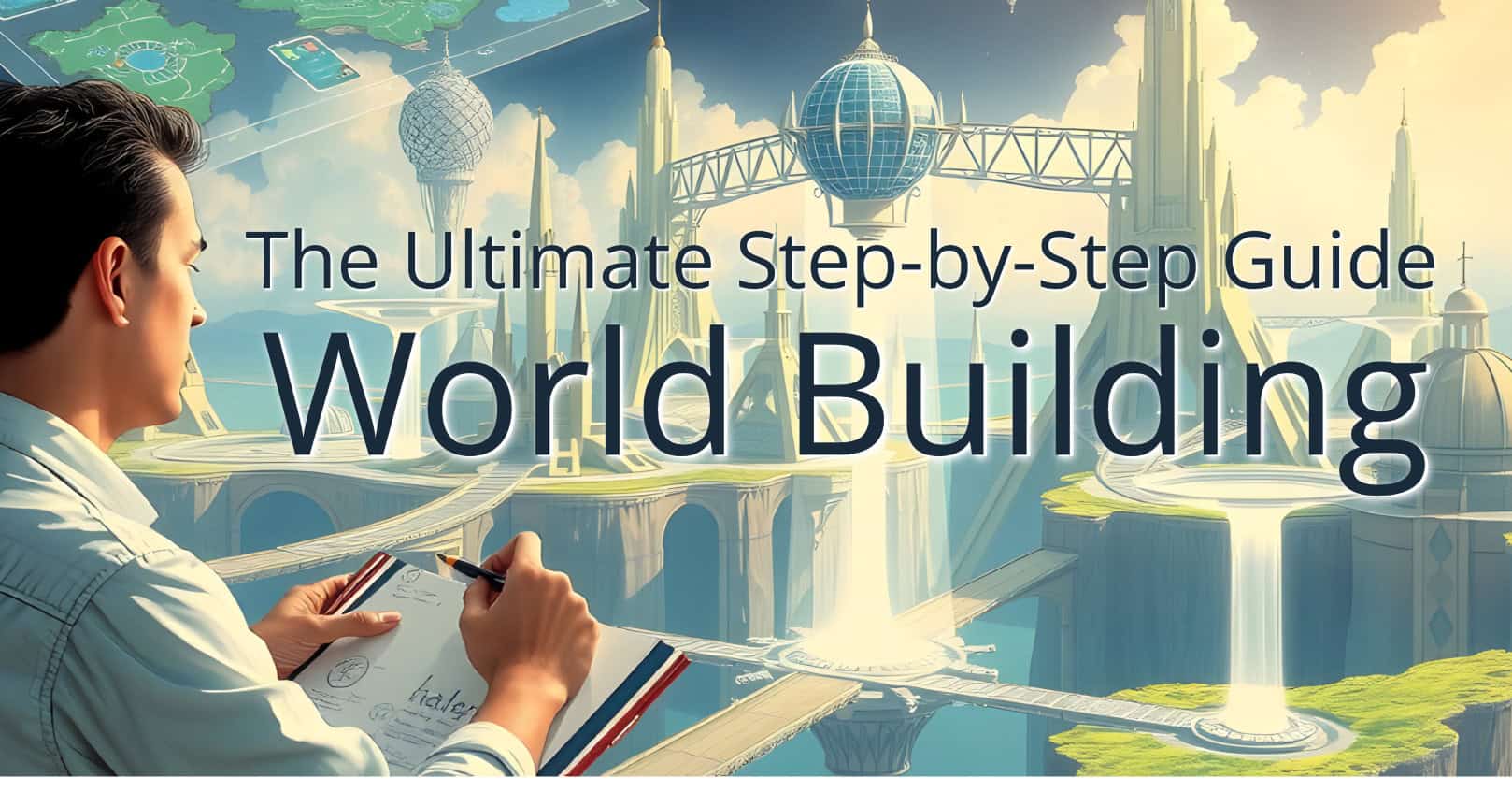
Are you a new author? Here are some common writing mistakes new authors make when first starting out—and many of these mistakes are still made by experienced authors too!
Not Reading Books in Your Target Genre
To write books that will sell well, you need to read what’s selling well in your genre. It’ll help you see what works with that audience and help you target ways to improve and make your novel stand out from the crowd.
Using an Idea that Doesn’t Work
Some books just aren’t based off good ideas. It may be because it doesn’t work for your target audience, or because the topic is only interesting to such a small group of people that you won’t be able to sell it. If you don’t have more than a decade of experience, it’s good to get feedback from authors and readers on your book idea before you start writing. Even if you have more experience, you can get great feedback from family and friends before sitting down to write that next book.
Wordiness
One of the most common writing mistakes new authors make is wordiness. This is caused by over-describing something, using redundant language, or describing something that the reader doesn’t need to know or can derive from context. Wordiness slows down your plot and bores the reader. To fix this, cut out words that aren’t necessary, such as the weak words talked about in this blog post. As you read through your book, identify areas where you use extra description, adjectives, or even backstory that can be easily understood from context, and then delete it. You don’t need to talk about every shutting door or each detail of the food eaten by your character. If it doesn’t forward the plot or have some other useful purpose, delete it. Beginning authors usually need to remove about ten percent of the words in their first draft.
Telling, Not Showing
Use action to tell a story, rather than telling the reader how your characters feel, what they think, and why they think that way. A good way to find telling instead of showing is to search for -ly adverbs (such as happily, sadly, excitedly, etc.) and replace them with action.
Check out the section on -ly adverbs in this post for more ideas on how to remove them and replace them with action beats.
Of course, there are other instances of telling instead of showing, so as you read through your manuscript, keep asking yourself whether you can rewrite to show action rather than telling the reader about it. If something important happens, don’t summarize it. Give your reader a emotion-filled, front row seat.
Having a Weak Opening
The first chapter in your book needs to catch the reader’s attention. Don’t start with excessive backstory or description. Start with a scene that is both interesting and a good jumping point into the book (so, if you’re writing a romance, don’t start with an action scene full of explosions because that doesn’t match the story). Many beginning authors start their story too early in the plot—sometimes your second or third chapter in your first draft is actually the good opening you need, and the information in those first chapters can be worked in through the characters’ actions.
Points of View
As a new author, you should stick to only one or two points of view in your book. It’s difficult even for an experienced author to have more points of view than that, and the more points of view you have, the more disconnected your reader will feel from the characters. If you have more experience, you could choose to write from an omnipotent point of view, but that type of view makes it difficult to get close to a character. If you’re writing from the point of view of a certain character, be sure to include only information that the character could know. Saying something like, “She could not have known that . . .” is inexperienced and is irritating to the reader.
And of course, be careful about jumping perspectives (points of view) within the same scene—it is usually done poorly and only confuses your reader.
Writing Unbelievable Conflict
If the conflict in your story can be resolved by the characters having a simple conversation, then the conflict is not good enough. It’s not satisfying to the reader—it’s actually frustrating. This type of situation can be part of the conflict, but it shouldn’t be the main conflict. What other internal conflict do your characters have? What is their motivation? What has happened in their past to contribute to this conflict?
Not Getting a Professional Editor
Let’s say your sister or cousin loves to read. That doesn’t make them a qualified editor. A qualified editor is someone who has taken classes on editing, who actually owns a copy of The Chicago Manual of Style, and who has experience editing novels in your genre. Don’t make the mistake of paying a reader to edit your novel when you should be paying an editor.
Do you know of any additional common writing mistakes new authors make? We’d love to hear in the comments below!















Comments